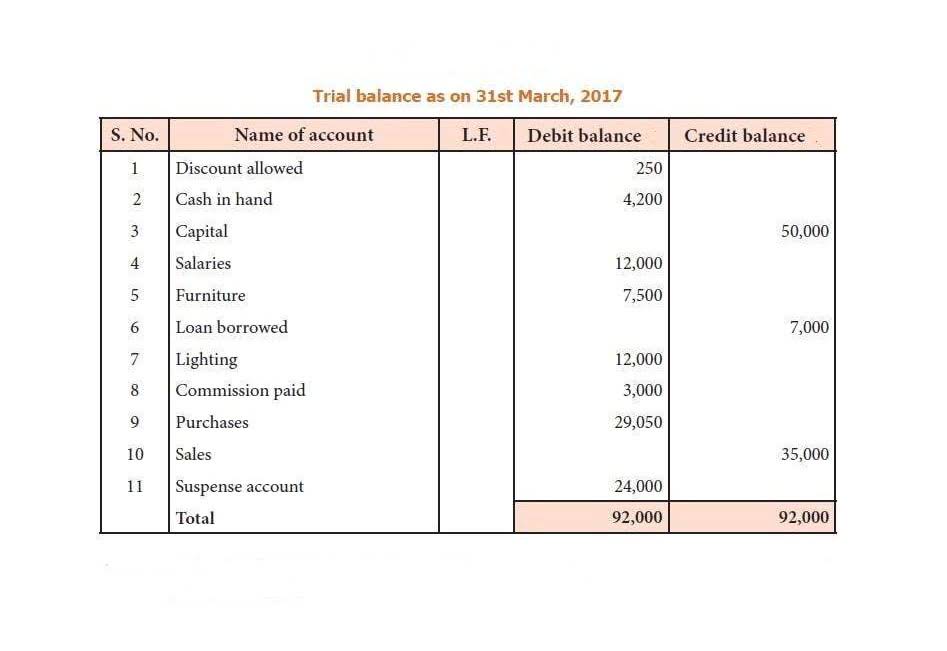
While you certainly don’t want to discount your business, you need to be realistic, otherwise the forecast will serve little purpose. Every business should have a budget — the insights, information, and guidance it provides are invaluable. For example, if you overspent on travel, you could consider reducing the budget for marketing. Request a live, 10-minute demo and get hands-on experience with IBM Planning Analytics by building a revenue plan.
City of Midland: Forecast shows $46M difference in expenses … – Midland Reporter-Telegram
City of Midland: Forecast shows $46M difference in expenses ….
Posted: Thu, 26 Oct 2023 22:22:22 GMT [source]
However, these reports can also be highly involved and time-consuming to put together. Our accounting software can enable you to put together more accurate budgets and forecasts in less time. In this guide, we’ll drill down into budgeting and forecasting and learn the differences, when to use each, and how to create budget forecasts for your business. BILL provides the tools to help businesses of all sizes track expenses, create budgets, and meet goals. A well-constructed financial forecast can inform your budget by showing which areas to emphasize for growth or reduction. An updated and strategic budget can help you adjust a financial forecast to reflect increased savings or mitigated losses.
What’s a budget?
The emergence of mainframe computers in the 1960s and personal computers in the 1980s sped up the process. Software applications such as Microsoft Excel became widely popular for financial reporting. However, Excel programs and spreadsheets were prone to input errors and cumbersome when various departments or individuals needed to collaborate on a report. There are five types of budgets a company typically produces in order to run the business. A financial forecast is usually limited in scope, focusing on expense line items and major streams of revenue.

It is an ongoing process as it needs to be revised, adjusted, updated and monitored at regular intervals when there is a change in the prevailing conditions. However, you can use the static budget as a guideline, and be flexible if business conditions change. You can adjust your spending if that’s the right business decision at the time. As you can see, budgets and forecasts are an essential part of operating a business. They help set expectations for future performance and guide decisions at both a high level and during the day-to-day grind. Put simply, a budget is a tactical tool intended to inform your day-to-day operations.
Talk with our team or check out these resources.
This step is where you take the data from your analysis and project estimated revenue based on earning history. This becomes your revenue goal and is the income benchmark you’ll use to make financial decisions over the forecasted period, so it helps to be a little conservative. While they may be changed in some exceptional circumstances, this tends to be the exception, rather than the rule.
- Although we frequently think of budgeting as an annual exercise, you can adjust budgets throughout the year.
- When you’re starting out in business, you may find monthly or even weekly forecasts necessary.
- Forecasts tend to focus on revenue and help determine spending predictions.
- For example, if you run a bike shop, you might forecast sales for bikes, clothing, accessories, and service.
- The budget will include details about the company’s revenues and expenses as well as its cash flow and financial position.
That is, you look at your business with a fresh perspective and therefore start from zero. You don’t account for your previous budgets and instead, you start from scratch. Zero-based budgeting is often helpful for businesses that want to curb their extra spending. In this type of budgeting, you have to look at the value of the factor at hand.
What is a Financial Forecast?
There are numerous types of causal methods that can be used for business forecasting. This relates to the particular factor that you want to forecast with several variables. For example, if you want growth of a certain percentage, then you will think of what activities will get you that growth. The main aim is to find the activities that difference between budget and forecast will enable you to achieve the goal through budgeting. There are different types of budgeting techniques that small businesses can use, such as zero-based budgeting or incremental budgeting. Zero-based budgeting involves starting from scratch and creating a budget from the ground up, without any assumptions from the previous year.
The logic is that to adapt to today’s quickly changing business conditions, an organization needs one solution that creates a single source of truth and visibility into all its data. These solutions can extend well beyond the financial https://www.bookstime.com/articles/what-is-book-balance aspects of the business, becoming a powerful forecasting engine across the enterprise. A budget and a forecast differ in several aspects, such as the time horizon, level of detail, frequency of revision, and degree of accuracy.
Purpose Of Forecasting
This is because a budget is used to determine financial needs and available resources, and it’s hard to plan based on constantly changing numbers. Forecasts, on the other hand, are about thinking big picture to help your business grow. Forecasts are driven by broader goals, like how much revenue you can bring in from an entire segment of your business. For example, how much revenue do you think you might bring in from bike sales, in general?
- Simpler forecasts, such as a sales forecast based on historical data, might be conducted each quarter.
- Budgeting is not as close to reality because you are essentially putting down goals and where you see your business at a particular time.
- A budget reveals the shape or direction of a company’s finance, while the forecast tracks whether or not the company is meeting its financial goals as outlined in the budget.
- You can use them to create pro forma financial statements or optimize operations by aligning resources and activities with projected financial outcomes.
- A budget is a detailed statement of expected revenues and expenditures which quantifies the tactical plans of the management to reach a desired goal for the company during a specified period.
- The solution should be easy to use, allowing business owners and team members from different departments to collaborate seamlessly.
- A budget is a detailed plan of how you intend to spend and earn money over a specific period of time, usually a year.


